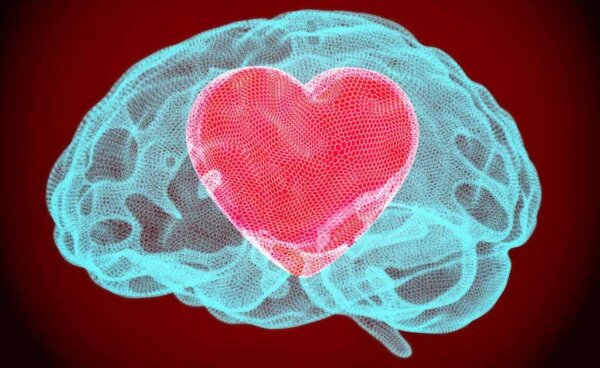Cognitive Kindness as a Psychological Commitment


Written and verified by the psychologist Valeria Sabater
You could change your life by exercising cognitive kindness and being more respectful, friendly, and polite. Many people don’t think they have the time to do so. This is because they’re driven by haste, personal worries, anxiety, and built-up fatigue and unwillingness.
This is a new concept worth considering. Advances in the understanding of human cognition indicate that reasoning, thinking, and reflection require time, willpower, and energy. This sequence often leads people to act like automata, either due to prejudice or impulse.
Humans are “cognitively greedy”. We try to make judgments as soon as possible in order to limit our energy expenditure. However, this impacts interpersonal relationships, as it makes us less empathetic with others.
This is also probably because it’s always easier to judge than to ask questions. Thus, people often get carried away by daily prejudices and stereotypes. This is gradually leading society to be insensitive, cold, and even selfish. Practicing cognitive kindness is the best way to counteract this. Let’s take a closer look.
Cognitive kindness urges you to be more present and attentive to your immediate reality. Being empathetic, aware, and responsive to others and to your environment implies being more open to the present moment.
“Indifference and neglect often do much more damage than outright dislike.”
-J.K. Rowling-

What’s cognitive kindness?
Cognitive kindness goes a step further than emotional intelligence. The latter seeks to enable people to understand and manage their emotions, while the former tries to reorient their way of processing reality in a kinder and more respectful way. Thus, it’s about learning to think, reflect, and attend to what surrounds you in a more attentive and even sensitive way.
Thus, cognitive science or cognitivism is an interdisciplinary field. It’s about the mind and its functions and processes. It’s also about language, memory, reasoning, and attention.
The study of kindness seeks to understand why the brain drives humans to be rude.
The term cognitive kindness is quite recent. American psychologist Karen Yu has used it in several TED talks, where she asked why people aren’t kinder if the mind is the best individual resource. Humans need this dimension to shape a more hopeful present and future in this increasingly complex world.
Continue reading to take a look at some dimensions that will help you better understand this idea.
People continue to reinforce myths about goodness
Today, people continue to acknowledge a number of ideas that belittle the meaning of goodness. For example:
- “Being kind makes you vulnerable.” This is completely distorted reasoning because kindness allows people to connect more authentically with others.
- “Kindness makes you weak.” People still believe and reinforce the myth that being good is naïve.
- “Being good is a waste of time, as people just take advantage of you.” This is another misconception. In fact, studies such as those conducted at Tohoku Gakuin University in Japan indicate that others perceive people who perform acts of kindness, goodness, and altruism as happier and more satisfied.
- People will take advantage of you if you’re kind and gentle at work. Indeed, this is another perception people tend to hold to when it comes to being part of social settings, such as schools or work environments. It’s as if altruistic behaviors reveal “weaknesses” that will incite people to go after them.
The truth is that humans would be better off if everyone exercised cognitive kindness.
Cognitive kindness is a strategy to enhance your brain and coexist in a better way
Kindness goes beyond the emotional, as it integrates thoughts, reasoning, and behaviors. Research works, such as those conducted in collaboration with Boston University, the Federal University of Rio de Janeiro, and the University of Valencia, explain something important.
They say that kindness implies care and attention to others and also a willingness to understand their situations and circumstances.
In order to carry out these processes, you must make a series of cognitive “efforts”. You shouldn’t think on autopilot or act out of prejudice and reason more thoughtfully and reflectively. This is because this is the best way to perceive reality. Only this way will you be able to be more sensitive to other people’s needs.

How to practice cognitive kindness
It isn’t easy to practice cognitive kindness because it requires you to deactivate biases and negative thinking patterns and reframe ideas.
The first thing you should do is stop judging. Nothing is as harmful as judging what you don’t really know and drawing your own conclusions without fully understanding the other person’s reality. Thus, you should leave any prejudices aside.
Likewise, goodness isn’t only a feeling. It requires action and implies making decisions and carrying them out. For example, it isn’t enough to perceive that your co-worker seems concerned. You should step up and ask them if there’s anything you can do to help them.
In essence, being cognitively kinder requires a blend of emotional intelligence and mindfulness, reflection, decision making, and value-sensitive behaviors. Although it may be complex, the results can be wonderful, especially in today’s world. Thus, exercise kindness and transform your world.
All cited sources were thoroughly reviewed by our team to ensure their quality, reliability, currency, and validity. The bibliography of this article was considered reliable and of academic or scientific accuracy.
- Mathers N. (2016). Compassion and the science of kindness: Harvard Davis Lecture 2015. The British journal of general practice : the journal of the Royal College of General Practitioners, 66(648), e525–e527. https://doi.org/10.3399/bjgp16X686041
- Mota, N., Chaves, E., Antunes, M., Borges, R., Paiva, A., & Santos, V. (2017). Contextualized Contribution of Kindness to Favorable Goal- and Circumstantial-Driven Neuropsychological Regulation. Frontiers in psychology, 8, 1643. https://doi.org/10.3389/fpsyg.2017.01643
- Yordanova, J., Kolev, V., Mauro, F., Nicolardi, V., Simione, L., Calabrese, L., Malinowski, P., & Raffone, A. (2020). Common and distinct lateralised patterns of neural coupling during focused attention, open monitoring and loving kindness meditation. Scientific reports, 10(1), 7430. https://doi.org/10.1038/s41598-020-64324-6
This text is provided for informational purposes only and does not replace consultation with a professional. If in doubt, consult your specialist.








